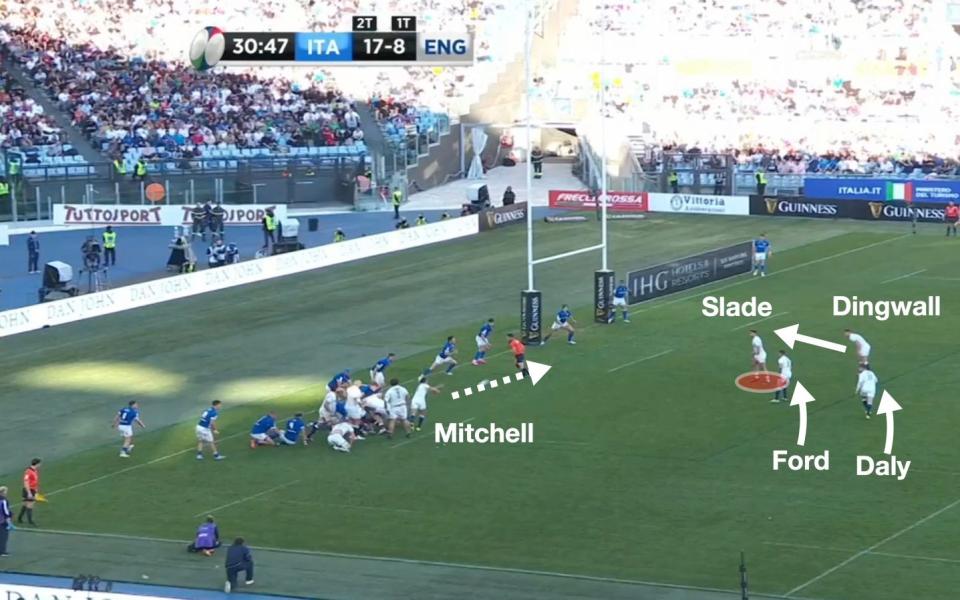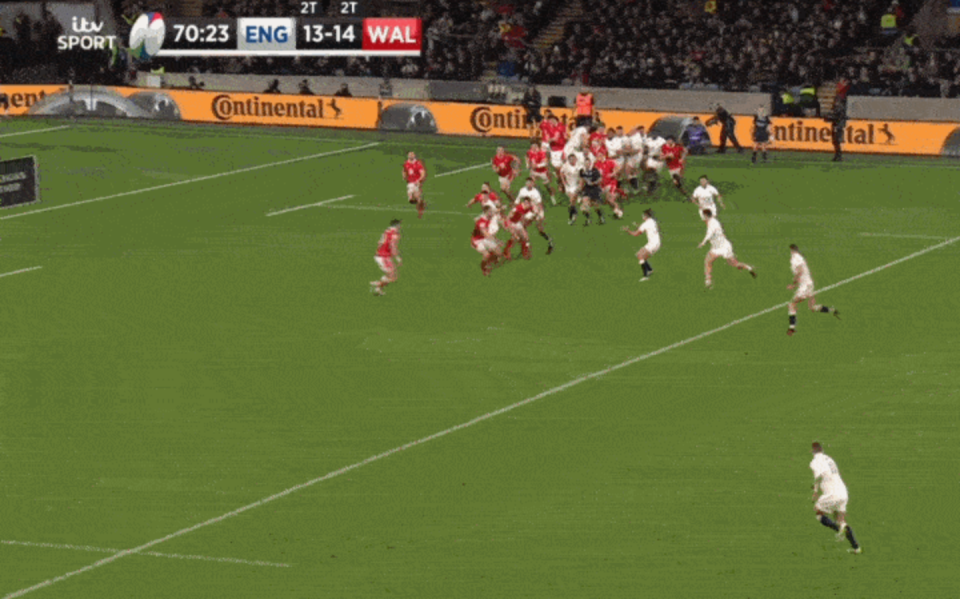After two appearances alongside Fraser Dingwall to start this Six Nations campaign, Henry Slade has now joined twelve different centers for England.
That is just one short of Michael Atherton’s number of opening partners during an English Test cricket career that spanned 14 years and 115 matches. The right-hander from Lancashire was stubborn and stoic and known for his persistent turbulence.
Slade, still only 30, will reach 60 caps this weekend; just over half of Atherton’s cricket revenue. That Slade has been paired with so many midfield colleagues since his debut in 2015 – from Sam Burgess to Ben Te’o via Piers Francis and Dan Kelly – accentuates the relentless turmoil in those positions.
Dingwall is a class player, but the return of Ollie Lawrence provides momentum and balances the backline. For the latter it will be an eighth start in combination with Slade, who never seemed indispensable to the English coaches. However, this weekend he is extremely important, especially because of his crucial role in a decisive attempt to subdue Finn Russell.
Ironically, Slade would not have been as qualified to lead a blitz defense without the bitter disappointment of missing the World Cup last year. When Steve Borthwick overlooked him and chose Joe Marchant instead, he returned to Exeter Chiefs. There, Omar Mouneimne implemented a new approach in the preparation. Mouneimne, like recently appointed England defense coach Felix Jones, is a former colleague of Jacques Nienaber, and wanted Exeter to be so aggressive that upcoming opponents would have to compromise their preparations.
“I coached with Jacques Nienaber at the Stormers in 2007, where it was a medium press and a smash in the tackle,” he explains eagerly. “Times have changed because the offense has changed. It’s a golden age for attacking. Attacks have never been more organized – ball in two hands, quick execution, shape on the line, running exits, extended tapping movements in the opposition 22. If you let teams get into a rhythm on you, they can quickly get the ball and hold on to it lives and terrorizes you.
“We have increased our line speed [at Exeter] for a while and much of it already exists [opponents] to redesign their week because we do so much homework on their offense. Every attack has a rhythm and something they crave most, whether they’re aiming for things on the reinforcement line or playing with width and speed. We want to take away what they desire most. And you’re not just concerned with speed and time, you cut option after option within a phase and make them think again all the time.
Mixing up the senses is a main goal of blitzing. And to state the obvious: you need to do a lot of running. Slade, a nimble athlete who is in the 13th channel, has managed three interceptions this season. One of them recorded a thrilling victory over Munster in the Champions Cup at Sandy Park. These high-speed shuttles can also lead to tackles behind the gain line, as Slade chased down Nick Tompkins in the final minutes of England’s victory over Wales. Even if carriers are sent back to the heavy traffic around rucks, the switch is worth it.
“You have to be extremely fit,” says Mouneimne. “Your speed and work rate without the ball have to be exceptional because you have to be ahead of the attack. If you don’t reload and reform before the attack, you won’t be able to shut them down. We have worked hard on that and on all the practical matters involved in take-off, withdrawal, take-off, withdrawal.
“Henry is the perfect man for this job because he is meticulous and therefore knows what the opposition will bring. He knows our shape perfectly and he is physically perfect for it. You want to work hard for a few phases to get the ball back faster. You blitz, read the piece and press on.
“He got those interceptions because of his priority. Tactically, he does his homework and knows what is coming. Technically, he’s so good in the way he moves.
England must also stay on the same page. If individuals rise up on their own, without teammates responding appropriately, Russell will pick holes. He did so in 2018, when Jonathan Joseph came out in support of Jonny May, and in 2023 when Owen Farrell went after him. Huw Jones was the beneficiary on both occasions, cutting through the defensive line into open space. The visitors will also have to adapt at times, as Russell will certainly tease them with his arsenal of chips and kicks.
Slade has been praised by both Richard Wigglesworth and Kevin Sinfield as a problem solver who has helped teammates by relying on his familiarity with a blitz system, and perhaps talking through situations where it felt unnatural. His expertise and intuition will support Jones’ strategy.
“It will be a blockbuster because Scotland is a good team with cohesion, coordination and a good culture,” says Mouneimne. “Gregor [Townsend] has done a good job with them and they have a lot of X Factor players.
“We obviously played Bath and got a taste of Finn – we’ll play them again in the Champions Cup. It will be exciting to see England try to cut his game plan in half and eliminate his options because he is a visionary. He can kick, play at the back, hit and release the front line. He will keep England busy and it will be a fascinating battle.”
While this week’s story revolved around how Scotland could be suppressed, England will also have to spend time in possession. Expect Slade and Lawrence to attack each other, and to make their side significantly sharper from first phase situations.
Early on against Wales, after a five-yard scrum, Alex Mitchell ran to the line with three flat options: Elliot Daly, Dingwall and Slade. A lack of guile simply allowed the defense to come together tightly. Slade spilled the pass, but would have been beaten up by George North anyway. He is not a battering ram:


In another setup, Slade has stepped up to distribute from the first receiver, with Dingwall cutting a tight angle and George Ford driving out the back on the blind wing:


Here, in Rome, Tommy Freeman is finally released:


A week later, the same move led to Mason Grady’s yellow card for an intentional knock:


However, it will be more powerful with the more explosive, front door threat of Lawrence. Even the most complicated attacks need momentum. Both Tommaso Menoncello and North have put England on the back foot with straightforward, direct running.
George Furbank, who replaces Freddie Steward, is a fine footballer at full-back and is more agile when the blitz is beaten. But England now have the space to be more confrontational. Slade can give Lawrence space to trouble Scotland. In that respect, he will be one of Borthwick’s most influential men on both sides of the ball this weekend.